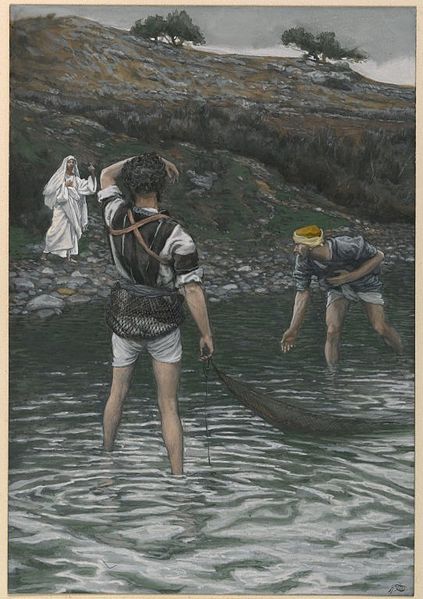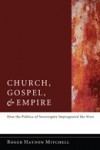
Although a superficial reading might suggest a straightforward interpretation of the Parable of the Talents, closer examination reveals troubling contradictions between this interpretation and the broader teaching of the gospel. Reading it as a descriptive parable of economic injustice provides us with a more satisfying, albeit grim, alternative interpretation.

As the people of Pentecost, our political vocation is to manifest the reality of God’s worldwide kingdom, to be a place where the enmity between peoples is overcome and the many tongues of humanity freely unite in the worship of their Creator. Amidst the Babelic projects of the ages, the Church proclaims by its existence that the kingdom belongs to God, that there is no other true ruler over all the nations.
Under the pretense of talking about pirate theology, Peter Rollins, Kester Brewer and Barry Taylor gathered to discuss “radical theology” at Fuller this month. Rollins, in particular, analyzed the intersection between psychoanalysis and theology, arguing that Christians need to experience doubt like Jesus on the cross, asking God, the father, “My God, my God, why have you forsaken me?” After much contrived discussion, the panelists concluded that radical theology will lead to the death of Christianity as a religion in order that a new manifestation of Jesus-following might emerge. While I sympathize with Rollins and co.’s intentions, I am not certain how radical theology’s psychoanalytic approach relates to non-western contexts. Moreover, their assessment of radical theology’s (read: Emergent Church) role in church history falls victim to the same dialectical trap that Rollins critiques in his work…
This procession down to Jerusalem is one of those very public moments in Jesus’ ministry. It could be called his most brilliant act of political theatre. Jesus proceeds toward Jerusalem, with a crowd that undoubtedly boasts some of the same sorts of outsiders Jesus has been connecting with all along: sinners, the possessed, the sick and blind, women, and foreigners. The crowd that shouts Hosanna would have been laughed at by any sensible members of society who happened upon this odd ritual. Much like I imagine today those with a high sense of their own political value would little understand what compelled these odd folk to gather as they had, creating trouble when they had little to gain but jail cells and crosses…

